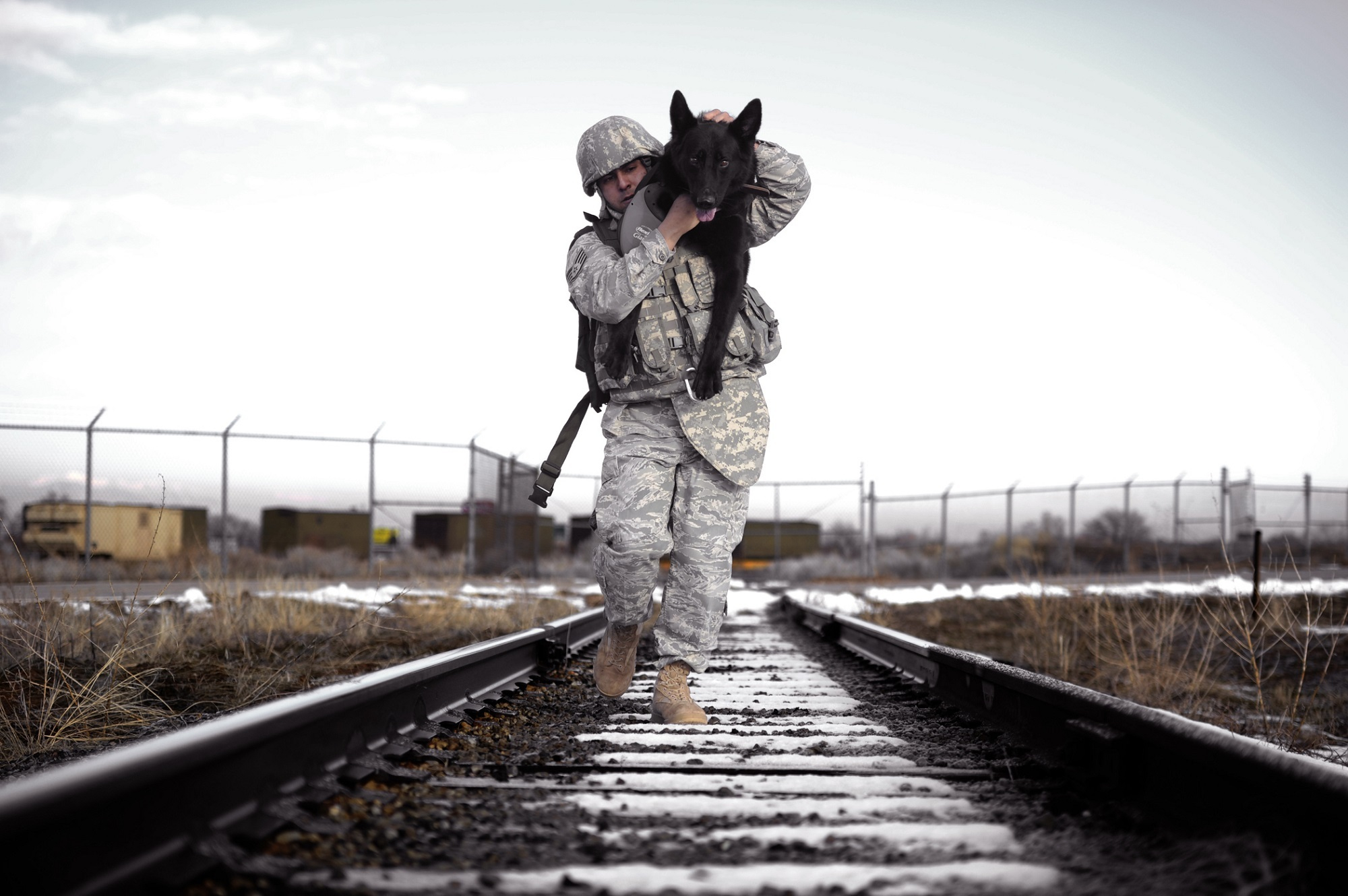VA Benefit Series: Service Dogs

As a veteran, you may be entitled to benefits from the VA for a service dog. In 2016, the VA had announced a pilot program that pairs veterans suffering from certain mental illnesses with service dogs. Since this time, the House has passed a bill that officially allows the VA to fund service dogs for veterans with PTSD.
Service dogs are trained to perform tasks for their owner who suffers from a chronic disability. They are classified as working animals, not pets. It’s also important to know the distinction between service animals and emotional support animals. Emotional support animals are not necessarily trained to do the tasks that a disabled veteran needs, but instead, serves as a comfort and companion for their owner. From a legal standpoint, the difference between the two is important. You cannot be denied entry with a registered service animal, but an emotional support animal does not fall under the same protections. You can learn more about the difference here.
Are you making the most of your VA benefits? Let’s take a deeper look at how these animals can help our veterans, find out if you’re eligible and what the application process entails.
How service dogs help our veterans
The idea behind a service dog is simple, you want to partner a highly trained canine with a veteran dealing with depression, PTSD, anxiety, and post-war disabilities such as limited mobility, amputation, and audio or visual impairments. Service dogs must have a calm demeanor, solid temperament and be unshakeable under pressure, therefore, very few dogs are suitable to be service dogs. Some benefits of a service dog for a veteran include:
- Reduce social anxiety
- Help veterans return to work or school
- Decrease dependence on prescription drugs
- Reduce medical costs
- Reduce suicidal thoughts and serious mental breakdowns
- Decrease dependence on drugs or alcohol
- Veterans are better prepared to care for their families
- Provide unconditional love and security
- Here are some in depth descriptions of how service dogs help our veterans
You may be wondering exactly how a canine can accomplish all of this. They are highly trained in tasks such as:
- Turning on lights and opening doors
- Pick up dropped items
- Provide security in public places to reduce hypervigilance
- Utilizing bodyweight to ground the veteran and reduce anxiety or panic
- Licking, nudging, or pawing to interrupt nightmares or flashbacks
- Retrieve medication bag and list of emergency contacts
Eligibility
If you are interested in applying for a service but unsure if you qualify, you can review these basic requirements before reaching out to your local VA branch:
- You received an honorable discharge after serving in one of the U.S. Armed Forces branches
- You have a diagnosed disability, like the disabilities mentioned above
- You have a support system in place if you are not physically able to meet the needs of your dog.
If your day to day life is interrupted and the overall quality of your life is affected, it may be time to reach out for information on obtaining a service dog.
Application process
You can request a service dog through the VA. The VA reviews your clinician’s notes and specific criteria are evaluated. Some of the criteria the VA is interested in is the ability to care for the dog and the goals that you are trying to accomplish by using the dog.
Once your request is approved, the VA will refer you to Assistance Dogs International-accredited agencies. You will not be charged for the dog or the dog’s training. Keep in mind, the VA will want you to receive training on how to use your service dog and learn dog handling skills. You can also check out this amazing organization, founded by a veteran, that helps veterans pair with service dogs.
If any of this information or criteria resonated with you, it’s recommended that you contact your doctor to learn more about the process. Service dogs are incredible and highly trained to help you achieve a better-quality life and return to the activities that ground you. If you’re eligible, why not take advantage of this amazing benefit?
A you a veteran
in transition?
Lorem ipsum dolor sit amet, consectetur adipiscing elit, sed do

